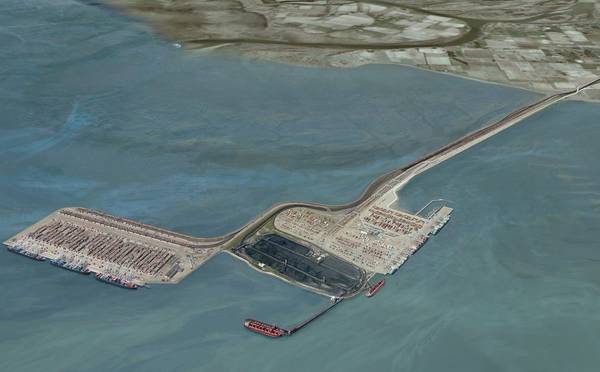
The Canadian government has approved a marine container terminal expansion project in Delta, B.C., following a environmental assessment process that started in 2013.
The Roberts Bank Terminal 2 Project includes building new land and a new three-berth marine container terminal near existing port terminals at Roberts Bank in Delta, B.C., about 35 kilometers south of Vancouver. The project will incrementally deliver an additional 2.4 million twenty-foot equivalent units (TEU) of capacity, ultimately increasing Canada’s west coast container capacity by approximately one-third.
Approval for the project comes as Canada’s container trade remains on a long-term growth trajectory, with west coast marine container terminals forecast to hit capacity by the mid- to late-2020s.
“With this approval, we can advance one of Canada’s most important trade infrastructure projects to date, bolster our national supply-chain resilience, and deliver generational economic benefits for Canadians and Canadian businesses,” said Robin Silvester, president and CEO of the Vancouver Fraser Port Authority, the federal agency leading the project.
According to the port authority, the project will deliver more than 18,000 jobs during construction; more than 17,300 ongoing jobs; an estimated $3 billion in GDP annually once built; and $631 million in tax revenue..
While a final investment decision has yet to be reached, the port authority said it will fund the estimated $2 billion project with the help of private investment. The agency said it will now continue to work toward obtaining other applicable approvals and permits to advance the project.
The expansion has faced opposition from environmentalist organizations and Indigenous groups who worry about harm to the local environment.
The Canadian Government green lighted the project subject to 370 legally binding conditions to protect the environment, including to prevent harm to local species. As a condition of approval of the project, the port authority must also put in place a $150-million financial guarantee to ensure funds are available for the first three years of construction to comply with these legally binding conditions.
Omar Alghabra, Minister of Transport, said, “Our government makes decisions that take into account science, environmental protection and economic needs. The approval of this project was not taken lightly. With strong measures, we will protect our ecosystem while increasing Canada’s supply chain capacity to ensure Canadians receive affordable goods on time while growing our economy and creating well-paying, middle-class jobs.”
Jonathan Wilkinson, Minister of Natural Resources, said, “[The approval] is based on the clear and compelling need for expanded container capacity on the West Coast, the robust mitigation measures that will be required of the proponent and that address key areas of environmental concern, and the support of the project from a number of First Nations. When we engage in good faith and let ourselves be guided by science, we can grow the economy in a way which advances reconciliation and protects the planet. Today is proof of that.”




